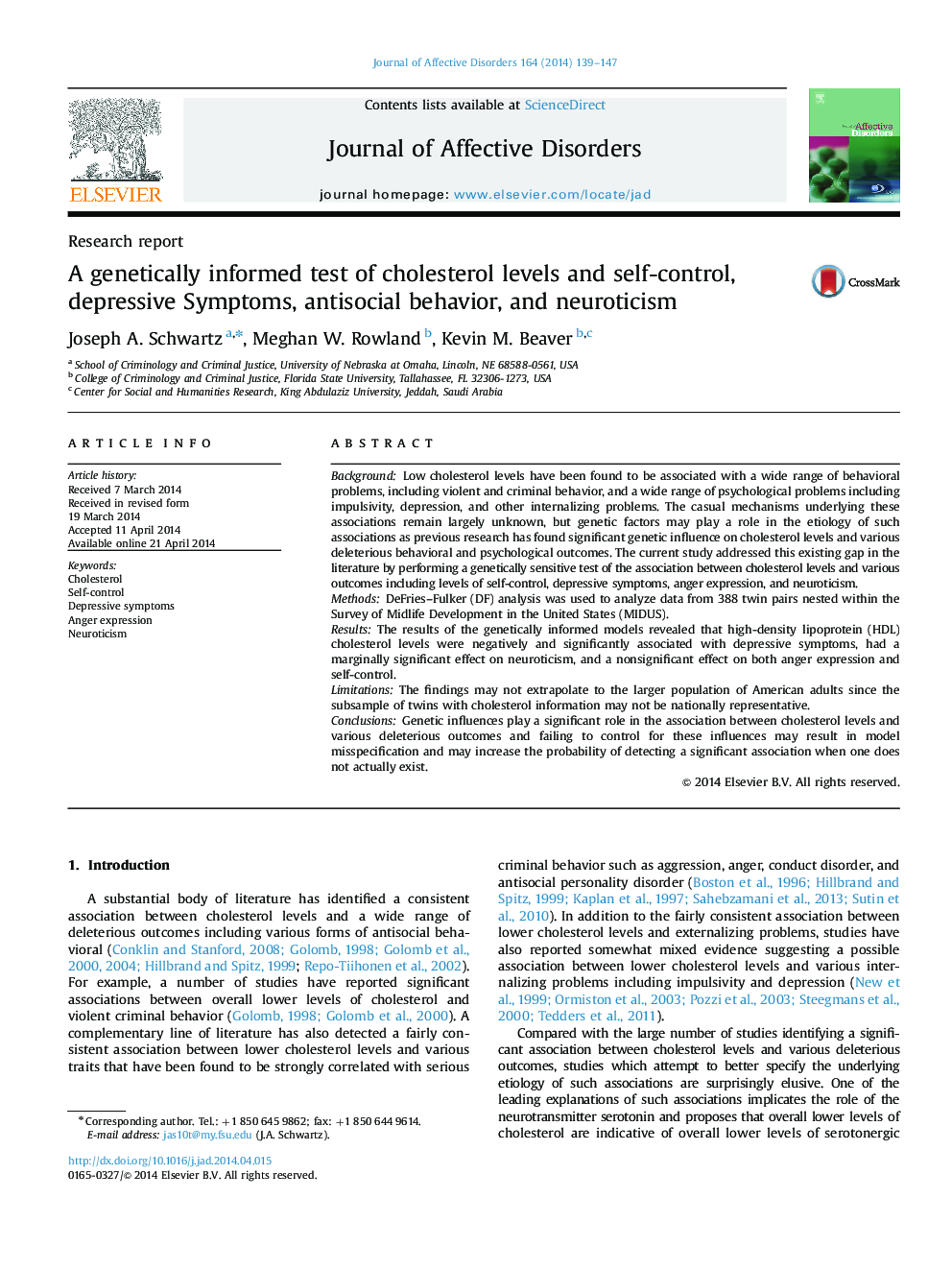| کد مقاله | کد نشریه | سال انتشار | مقاله انگلیسی | نسخه تمام متن |
|---|---|---|---|---|
| 6233043 | 1608161 | 2014 | 9 صفحه PDF | دانلود رایگان |
BackgroundLow cholesterol levels have been found to be associated with a wide range of behavioral problems, including violent and criminal behavior, and a wide range of psychological problems including impulsivity, depression, and other internalizing problems. The casual mechanisms underlying these associations remain largely unknown, but genetic factors may play a role in the etiology of such associations as previous research has found significant genetic influence on cholesterol levels and various deleterious behavioral and psychological outcomes. The current study addressed this existing gap in the literature by performing a genetically sensitive test of the association between cholesterol levels and various outcomes including levels of self-control, depressive symptoms, anger expression, and neuroticism.MethodsDeFries-Fulker (DF) analysis was used to analyze data from 388 twin pairs nested within the Survey of Midlife Development in the United States (MIDUS).ResultsThe results of the genetically informed models revealed that high-density lipoprotein (HDL) cholesterol levels were negatively and significantly associated with depressive symptoms, had a marginally significant effect on neuroticism, and a nonsignificant effect on both anger expression and self-control.LimitationsThe findings may not extrapolate to the larger population of American adults since the subsample of twins with cholesterol information may not be nationally representative.ConclusionsGenetic influences play a significant role in the association between cholesterol levels and various deleterious outcomes and failing to control for these influences may result in model misspecification and may increase the probability of detecting a significant association when one does not actually exist.
Journal: Journal of Affective Disorders - Volume 164, 1 August 2014, Pages 139-147
